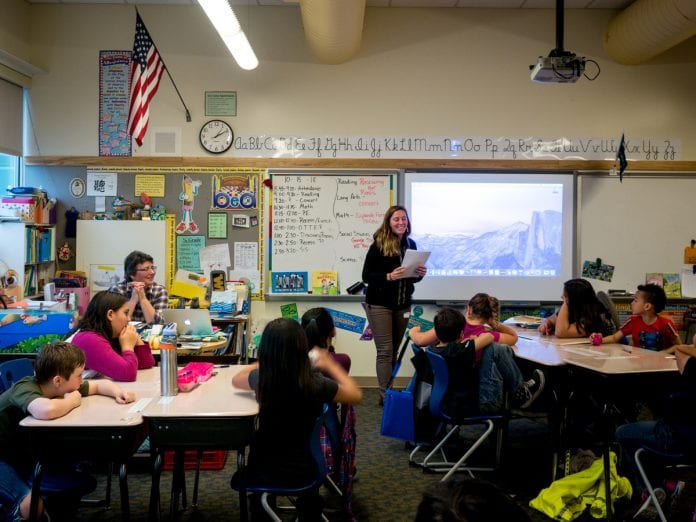
On Oct. 25 the Department of Education announced awards totaling $115 million to help increase compensation for educators and increase educator diversity, including over $2.5 million coming to Alaska.
The money will support 29 Teacher and School Leader (TSL) Incentive projects, which are meant to help districts across the country address educator shortages and increase educator compensation and retention.
The Alaska Council of School Administrators is set to receive $2,567,300 of this grant money.
“All students benefit from a diverse and well-supported educator workforce that can prepare them to lead,” said U.S. Secretary of Education Miguel Cardona in a statement. “While all students benefit from diverse teachers, when students of color see their backgrounds and experiences reflected in their teachers, we see higher levels of academic achievement and student engagement in school, and more students aspiring to be teachers themselves one day.”
“That’s why attracting, retaining, and supporting a diverse educator workforce is a top priority in our efforts to Raise the Bar for learning conditions in our schools,” Cardona said.
The grant allocation process prioritized activities and programs that promoted educator diversity and opportunities for career advancement that can improve teacher retention.
Cardona’s education department has had the mission of supporting a diverse, well-prepared, and sustainable national teaching workforce.
“This nearly $115 million investment will help states and school districts recruit and retain new talent, increase compensation, and address educator shortages that we know disproportionately impact students from our communities of color, students from low-income backgrounds, students with disabilities and English learners,” said Cardona.
The department said that this funding injection comes at a critical time as school districts face hurdles in attracting and then retaining qualified educators. It said these staffing challenges disproportionately affect students who may need additional or unique support, including underrepresented minorities, students with disabilities, low-income students, and students who are English language learners.












